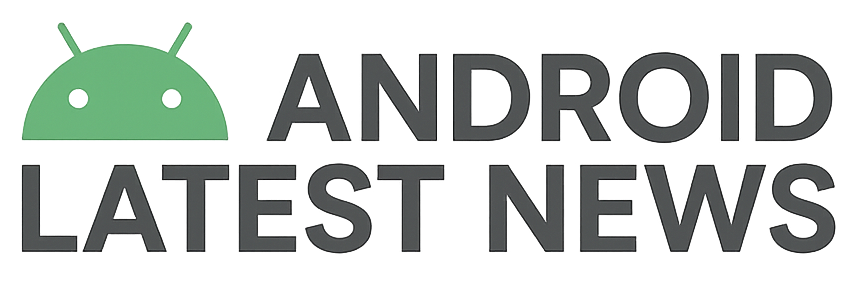Android users may soon gain access to a highly anticipated Fitbit feature that has, until now, been exclusive to iPhone owners. As wearable technology continues to evolve, the gap between platform-specific functionalities is narrowing, promising a more unified experience for fitness enthusiasts across devices. This development signals a significant step toward greater inclusivity and enhanced usability for Android users eager to leverage the full potential of their Fitbit devices.
Android Integration Enhances Fitbit Functionality for Broader User Base
Fitbit’s ongoing collaboration with Android signals a significant shift toward a more inclusive and adaptable wearable experience. Android users have long missed out on certain exclusive features that once boosted the iPhone-Fitbit synergy, but that gap is closing rapidly. With enhanced integration, Android devices are now primed to unlock functionalities that improve device interoperability, user convenience, and real-time health monitoring across platforms. This development not only levels the playing field for millions of Android users but also highlights Fitbit’s commitment to universal usability and innovation.
Among the anticipated benefits are:
- Seamless data sync: Automatic background syncing that ensures fitness stats and notifications stay up-to-date without manual intervention.
- Advanced health metrics: Full access to cutting-edge tracking technologies previously limited to iOS, such as ECG readings and stress monitoring.
- Expanded app integrations: Smoother compatibility with popular Android apps, fostering a more holistic fitness ecosystem.
- Improved notification management: Enhanced controls for call, message, and app alerts directly from Fitbit devices.
Exploring the Exclusive Features iPhone Users Have Enjoyed Until Now
For years, iPhone users have benefited from an exclusive suite of Fitbit features finely tuned to integrate seamlessly within the Apple ecosystem. Among these, health data synchronization with Apple HealthKit, instant notifications through iOS widgets, and the ability to leverage Siri for voice-controlled fitness metrics stand out as pivotal enhancements. These features not only elevate user convenience but also enable more comprehensive health tracking by unifying data across multiple apps, providing a richer and more intuitive experience.
Specifically, the standout advantage has been Fitbit’s real-time syncing with iOS devices, which grants iPhone owners immediate access to activity insights without the need for manual refreshes. Additionally, Apple users have enjoyed exclusive Fitbit complication support on the Apple Watch, offering customizable glanceable stats on the wrist. This tight integration has contributed to a smoother user journey – one that Android users, until now, have eagerly awaited as Fitbit hints at expanding compatibility for these once iPhone-only functionalities.
- Seamless Fitbit and Apple Health data integration
- Customizable iOS widgets displaying real-time stats
- Siri voice command compatibility for fitness tracking
- Apple Watch complication support customized by Fitbit
Technical Challenges and Solutions for Fitbit on Android Platforms
Bringing recently exclusive iPhone features to Fitbit’s Android app has demanded overcoming a series of technical hurdles, notably related to fragmentation across Android devices. Unlike iOS, where the operating system and hardware are tightly controlled, Android’s diverse ecosystem presents challenges like varying Bluetooth implementations and inconsistent permission handling. Developers had to engineer custom solutions to synchronize Fitbit’s advanced health tracking capabilities reliably, ensuring seamless data exchange without compromising battery life or app performance.
Among the key innovations was the development of adaptive connection algorithms that optimize communication protocols based on device-specific constraints. Additionally, the team worked closely with Google to align the app with Android’s latest privacy frameworks, facilitating smoother user consent processes. These efforts culminated in features that not only replicate the iPhone experience but also leverage Android’s unique capabilities, such as background activity tracking and enhanced notification management, thereby enriching the fitness experience for Android users.
- Adaptive Bluetooth syncing: Customized protocols for diverse hardware.
- Battery optimization: Efficient background processes to conserve power.
- Privacy compliance: Built-in support for evolving Android permissions.
- Leveraging Android strengths: Enhanced notifications and background tracking.
Maximizing Your Fitbit Experience on Android Devices with Practical Tips
For Android users eager to elevate their Fitbit experience, practical steps can unlock the full potential of their devices. First, ensure your Fitbit app is updated regularly to access the latest features and bug fixes. Maximizing battery life during workouts involves turning on power-saving modes within the app and disabling non-essential notifications that might drain the battery quickly. Moreover, syncing data frequently not only keeps your stats up to date but also helps prevent data loss in case of device issues. For seamless integration, Android users should leverage Google Fit compatibility, allowing a broader view of health metrics and fostering a holistic approach to wellness.
Additionally, customizing notifications can transform daily interactions into more meaningful health cues. Use the app’s notification settings to prioritize alerts for heart rate zones, step milestones, and inactivity reminders. Incorporating third-party apps that complement Fitbit’s functionalities can also provide a richer data analysis experience-ranging from nutrition trackers to advanced sleep monitoring tools. And with the imminent rollout of features previously exclusive to iPhone users, such as enhanced workout tracking and sleep insights, Android owners will soon benefit from parity, gaining deeper insights without switching platforms.
- Keep your Fitbit app updated for the latest features and improvements.
- Sync regularly to maintain accurate and comprehensive health data.
- Customize notifications to focus on meaningful health alerts.
- Use power-saving modes during intense activity sessions.
- Integrate with Google Fit for a broader health overview.
- Explore compatible third-party apps to enhance sleep and nutrition tracking.
As Android users eagerly anticipate the arrival of this much-requested Fitbit feature, the move signals a growing commitment to cross-platform parity in the wearable tech space. Bridging the gap between iOS and Android experiences not only enhances user satisfaction but also reinforces Fitbit’s position in a highly competitive market. While an official rollout date has yet to be confirmed, this development offers a promising glimpse into a more inclusive future for health and fitness tracking on Android devices.



